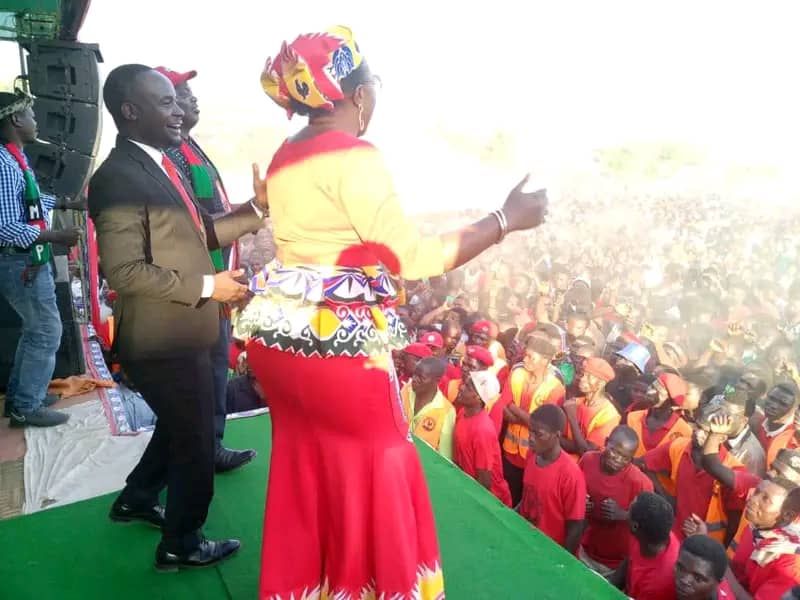By Burnett Munthali
Vera Kamtukule, a member of the Malawi Congress Party (MCP), has made a bold and timely call urging parents to stop the practice of marrying off their children while they are still minors. Her remarks, delivered during an MCP rally in Lilongwe Msozi North, hosted by MP Sosten Gwengwe, address a deeply rooted issue in Malawian society—child marriages. This practice, which has long been criticized by various stakeholders, continues to destroy the futures of many young Malawians, particularly girls.

The Cultural and Social Implications of Child Marriages
Child marriages in Malawi are often driven by poverty, cultural traditions, and gender inequality. Parents in economically disadvantaged communities may see marriage as a way to secure their daughters’ future or reduce financial burdens. However, this practice strips children of their right to education, health, and a bright future. Kamtukule’s statement reflects the urgency to address these harmful traditions, which, despite ongoing efforts, remain prevalent in many areas of the country.
By condemning the practice, Kamtukule is joining a broader movement that seeks to empower children, particularly girls, and ensure they have access to education and the opportunity to build their futures. Early marriages not only deny young people their fundamental rights but also contribute to cycles of poverty, as girls who marry young are more likely to drop out of school and face economic hardship.
Kamtukule’s reference to President Lazarus Chakwera’s stance on child marriages underscores the government’s commitment to eradicating this harmful tradition. Chakwera has been vocal about the need to protect children and ensure that they grow up in environments that foster their development, not hinder it. The president’s leadership on this issue sends a strong message to both parents and traditional leaders, urging them to prioritize children’s welfare over cultural practices that endanger their futures.
Kamtukule’s call for parents and leaders to take a lesson from President Chakwera reflects the belief that change must come from both government policy and grassroots efforts. The involvement of local leaders, such as Senior Chief Chadza, and government officials like Energy Minister Ibrahim Matola, who was present at the rally, highlights the importance of collective action in tackling child marriages.
The MCP rally, initially organized to celebrate the arrival of electricity in the area, became a platform for discussing social issues such as child marriages. The introduction of electricity is a symbol of development, but Kamtukule’s message reminds us that true progress involves more than infrastructure—it requires addressing deep-seated social problems like early marriages.
The presence of electricity may provide new opportunities for education and economic growth in the area, but ending child marriages is essential to ensuring that children, especially girls, can fully benefit from these advancements. Kamtukule’s focus on this issue demonstrates that development must go hand in hand with the protection of children’s rights.
Vera Kamtukule’s strong stance against child marriages is a critical step toward creating a brighter future for Malawian children. By urging parents to abandon this harmful practice, she is advocating for a society where children are given the opportunity to reach their full potential. Her alignment with President Chakwera’s views strengthens her message, signaling that this issue is a priority for the government and should be for the people as well.
As Malawi continues to develop, both socially and economically, it is crucial that harmful cultural practices, such as child marriages, are left behind. Only by ensuring that every child has the chance to grow, learn, and thrive can Malawi truly achieve sustainable progress.










